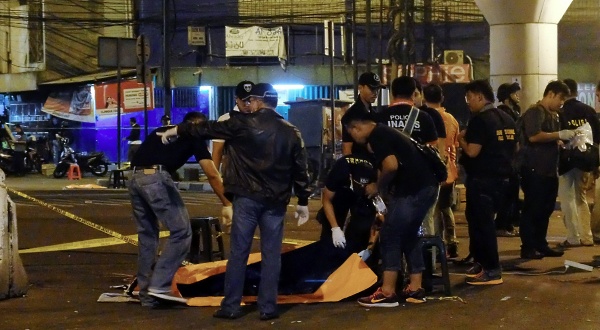Indonesia Grapples with Terror Threat as Islamic Militants Return

I
Jakarta, MINA – Recent terror attacks in Indonesia tied to the Islamic State highlight the growing threat as militants pushed out of the Middle East return home to other parts of Asia, Nikkei Asian Review reported.
The Indonesian National Police linked the family behind Sunday’s suicide bombings at three churches in Surabaya, the country’s second-largest city, to a group inspired by IS ideology.
The couple and their four children, all involved in the attacks, had apparently traveled to Syria. After returning, the husband served as a senior member of Jemaah Ansharut Daulah, or JAD.
Authorities estimate that Indonesia is home to 500 Islamic State adherents, including former militants and their families.
Since its formation in 2015, JAD has launched attacks on Indonesia’s secular government and establishments affiliated with other religions, aiming to bring the country under the rule of Islamic law.
The group is strongly suspected of responsibility for bombings in central Jakarta in January 2016 as well as a suicide attack on a busy bus station in May 2017. The U.S. State Department named the organization a terrorist group last year, imposing economic sanctions that include prohibiting Americans from transactions with JAD.
The threat posed by the group seemed to have abated until the recent string of attacks ahead of Ramadan, the Islamic month of fasting, which begins this week.
More than 150 detainees, including dozens of JAD members, rioted last week at the headquarters of the National Police’s elite Mobile Brigade, seizing weapons and holding police officers hostage. JAD militants had been arrested at that site several days earlier.
On Monday, a family of five carried out a suicide bombing on Surabaya’s police headquarters.
Since the Islamic State declared in June 2014 that it was establishing a caliphate in occupied portions of Iraq and Syria, the group has made canny use of the internet to attract fighters from around the globe. Over 40,000 people from outside those two countries are said to have joined the group.
Asia has been slow to address IS threat
A coalition military effort against IS has driven the group out of many former strongholds in the Middle East. But this has led many fighters to flee elsewhere or return home.
“The more IS fighters have emerged from a country, the more vigilant that country must be,” said Yutaka Takaoka, senior research fellow at the Middle East Institute of Japan.
Tunisia is thought to be home to the largest number of foreign Islamic State fighters, around 6,000. Nations in the Middle East and Europe also have given rise to many IS militants. Several hundred Indonesians are thought to have joined the fight, and around 50 have returned home, American media reports indicate.
Indonesian police have a list of 500 people who are considered security threats, based on travel to Syria. The government and parliament are working to revise the country’s anti-terrorism law to let police arrest these people, but face humanitarian concerns in the effort.
“It’s clear to me” that Islamic State “is also ‘rebalancing’ to the Indo-Asia-Pacific,” Adm. Harry Harris, commander of the U.S. Pacific Command, said in September 2016. At the time, the U.S. sought to cultivate a greater military and diplomatic presence in that region, a strategy termed rebalancing.
Terror attacks in Europe and elsewhere have prompted those countries to bolster precautions. But Asian nations have been slow to address threats such as IS, either unilaterally or through international cooperation. (T/RS5/RS1)
Mi’raj Islamic News Agency (MINA)




